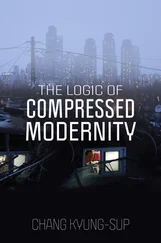“But of course Hector would be here.”
She would have wished for Ames not to say his name. But he went on: “You know, I’ve been thinking it might be best if he could stay around. I mean after we’ve gone. I know I’ve told him otherwise. But now I think I was wrong. Hector still doesn’t seem to know it, or perhaps he knows and doesn’t care, but he’s good for the children, in his own way.”
She nodded but was silent.
“I was thinking that perhaps it’s not so terrible, to have an adult around who’s not telling them what to do all day. Who’s not a preacher. I think I’ve been too strident about what I expect of them. Sometimes I think I’m not seeing who they are. They’re children, yes. But they’re not innocents, and maybe it’s not the worst thing to have someone like Hector around, who is obviously not so certain of his future. Who clearly struggles. But he works as hard as anyone I’ve ever seen and I know the children recognize that, too, and I wonder if that’s not better for them than any sermon from me.”
“You’ve only done wonders for them. Here and at all the other orphanages. No one could say anything otherwise. They love you.”
He clasped her cheek. “I have to teach now. Will you be all right?”
“I’ll be fine.”
“I’ll bring you something again at lunch.”
“Please don’t,” she said. “I can make myself tea. That’s all I need.”
“All right. Will you do something for me, dear?”
“Yes, of course.”
“I was hoping that you would speak to Hector. When you’re feeling better, I mean.”
“What about?”
“I’d like you to ask him to remain here, after we’re gone. I doubt my asking him would do any good. Don’t you think it would be best if he stayed on? I don’t know how I or Reverend Kim will find someone else who would know to do all the necessary things, before and after the winter comes. I think only you have any chance of convincing him.”
“He won’t listen to me.”
“Why not? He’s always thought so highly of you. Am I wrong?”
“We haven’t spoken very much of late.”
“I have noticed that,” he said, his wire spectacles still in his hand. The late-morning sun was streaming in from the window and brightly lighted the side of his face. He looked tired himself, worn down, and then oddly childlike, his sky-blue eyes appearing immense against the tight, drawn skin of his brow.
“Did something happen?” he muttered, looking down at his spectacles. “Did he offend you in some way?”
“No.”
“Then what is it?”
He waited, but she didn’t answer. Finally he pulled on his eyeglasses. She was sure he was going to say something difficult now, something irreparable and lasting, but he paused in mid-breath, literally swallowing the words. He reached for her then, and she shut her eyes, a flinch tensing her neck, but all she felt was his tender stroking of her hair.
“You should rest now,” he said, his own voice weary. He got up and put on his black suit jacket. “I’ll be back after lunch, to look in on you.”
“I’ll pack for you.”
“Just rest. I’ll do it. This is as good a time to learn as any. Because you were sick I had to help the three boys gather their things. We ended up simply stuffing what we could in each of their satchels. Nothing stayed folded. Jung wanted to bring his collection of rocks, Jin his live beetles. It was such a mess that Mrs. Stolz had to take everything out and start again, and I must admit I felt completely useless. You’ve spoiled me.”
“I’m the one who’s spoiled,” she said.
He leaned down and kissed her. “When I get back, I think we should tend to each other as much as we can. And do so right up to the time we settle down again in Spokane. Can we do that, dear? Can we promise each other?”
“Yes.”
They kissed and embraced again, but before he could leave she said, “I’ll talk to him, Ames. I’ll try.”
He nodded from the bedroom doorway. “I won’t expect that you can change his mind. I won’t expect anything.”
She was asleep when Ames departed the next morning, the driver from the church office in Seoul picking him up before dawn. She must have woken just as the sedan headed out beneath the arched gate and down the hill; in her dreams she heard the squeals of children but it must have been the car brakes and she had quickly risen but by the time she opened the front door of the cottage there was nothing in the frigid air except the lean, sweet perfume of motor exhaust. When it dissipated she felt even colder in her nightgown, the buildings about her barely discernible in the dim, rising light. Ribbed batons of clouds underpinned the sky. They would blow away soon. Ames had told her he wouldn’t rouse her and yet she still felt as if she had been abandoned. He had gone not a kilometer and she felt the loneliness already. Her body wasn’t frantic anymore but now felt instead like a forlorn hive, every chamber of her desiccated and empty. As if she were made of a thousand tiny tombs. Of course it was having been left now to her own devices that was most disturbing, making her wish that it was mid-morning already, with the Reverend Kim long arrived, the children bolting about with the aunties keeping after them, the pitch and shout of the day careening them all forward. She needed time to speed up. But there was no sound or light or movement, and rather than just turn back in and shut the door, she stepped in her bare feet onto the chilly ground. The shock of it made her gasp. But her mind was finally clearing and the cold air was bracing her and she didn’t want to sleep anymore despite her physical exhaustion, for she was sick of sleep, and she stepped forth in the darkness toward the dormitory, her thoughts alighting on the children.
She wiped her feet on the towels the aunties placed before each of the three inner doors in the small vestibule; the doors led to separate dorm rooms, one side for the boys and the other for the girls. The one in the middle led to the chapel Hector had built. The vestibule itself was filled with their shoes, which because they were donated were of an unusually wide variety, sneakers and sandals and dress shoes and boots. Her eyes had adjusted to the dimness, everything made stony-looking in the weak blue light. And though she wanted now to peer in on June, missing the sight of her pretty, round face, a face so much more placid than her soul, she could not bear to speak anything of the coming days. For what could she have said to the girl? How could she ever console her? With the fact that she and Ames were not going to take any children at all? That she was finally as unfit to be a mother as she had been a wife, and even a mistress? That she was a bleeding heart and a coward, a person unfit, it turned out, to be herself? Their departure was imminent and Ames had not mentioned the subject of adoption and she could not breathe a word of question. As far as she knew, the arrangements they made on arriving in Korea to adopt some to-be-determined number of children had not yet been canceled. But it was no matter; Reverend Kim had confirmed as much the other day, when he gave Ames an envelope with the tickets for the first flight to Japan. There were just two, as Ames had specified. They had always assumed that they would take four with them, or five, or ten, as many as they could. But now they would return childless, which, she could now begin to see, perhaps as Ames had already seen, was a mercy for all.
She slipped into the boys’ room. She had ventured into both rooms before on certain restless nights, the sight of slumbering children a calming medicine. Here, as in the girls’, they slept in rows broken in the center by a large potbellied coal stove that the children took turns feeding through the night. There was no central heating and in the heart of winter it was important to keep it hot because there was no insulation in these walls, but this time of year it didn’t matter so much and the stove was now barely warm to the touch. The air was heavy and dampened with the smell of their bodies, and of sleep, and at this preadolescent stage it was much the same scent as in the girls’ room and though Sylvie could see how it might be off-putting or unpleasant she didn’t mind the sour fatness of the smell, in fact half-adored it, like day-old cake. She was tempted to lie down for a moment in one of the three newly empty beds. Their sleep was hard, so deep as to appear almost deathly, though one of the older ones looked as if he were being beset by awful dreams, his face pinched up like an infant’s, his fists guarding his head.
Читать дальше











